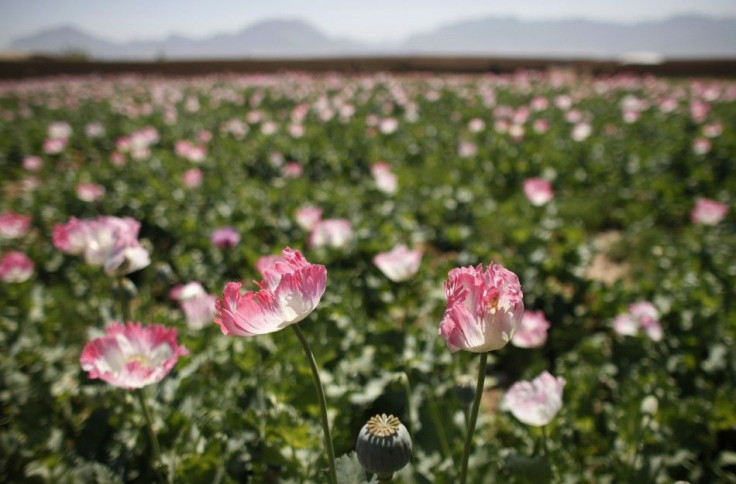Opium Prices Skyrocket in Afghanistan

The price of Afghan opium soared by 133 percent last year, according to a report from the United Nations.
Opium poppy farmers in Afghanistan are estimated to have earned more than $1.4-billion in 2011, or the equivalent of about 9 percent of Afghan GDP.
Opium can be refined into morphine which can subsequently be processed into heroin.
The fortunes of Afghanistan’s opium poppy crop greatly influences its price since the country is believed to account for about 90 percent of global production. In 2010, when a fungal disease afflicted much of the nation’s crop, prices started to climb. Although production has now returned to pre-2010 levels, prices have nonetheless remained high.
The UN said that Afghan farmers produced 6,400 tons of opium last year, versus 4,000 tons in 2010.
Opium has played a key role in Afghan politics, particularly with respect to the Taliban militant movement as well as corruption by state officials.
Yuri Fedotov, the chief of the UN's Office on Drugs and Crime, declared: Opium is therefore a significant part of the Afghan economy and provides considerable funding to the insurgency and fuels corruption.”
Indeed, revenue from opium sales have been used by the Taliban to purchase weapons and bribe officials.
Three regions of Afghanistan which had previously been character sized as “poppy-free” have seen a dramatic resumption of cultivation -- Kapisa in the east, and Baghlan and Faryab in the north. Most opium cultivation is in the southern part of the country, which is dominated by criminal networks and where production of legal crops is almost impossible.
Pamela Falk, CBS News foreign affair analyst commented: This year's U.N. [report] focuses on the impact of the rise in prices on corruption and the growth of cartels in Afghanistan. It makes the point that, despite efforts to stop the drug trafficking, Afghanistan's future will be hindered by the trade unless more money and international collaboration is provided.
Falk added: Last year's report was also grim, and it was the first major U.N. recognition that the drug trade funds organized crime, terrorism and other security threats.”
The Afghan, U.S. and Russian governments have long urged the dismantling of the country’s illicit poppy trade, but the profits are simply too lucrative to ignore. According to reports, most Afghan opium is shipped to distant markets, particularly Russia and Western Europe, through Pakistan and Iran.
Russia alone reportedly has 2-million opium and heroin addicts
Counternarcotics is not the exclusive domain of specialized units alone, but the shared responsibility of everybody concerned with security, stability, governance and development in Afghanistan and the wider region, Fedotov added.
© Copyright IBTimes 2025. All rights reserved.





















